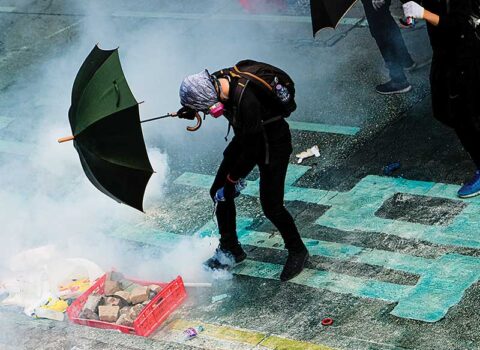In June 2019, mass protests erupted in Hong Kong in response to a bill that would have allowed the extradition of fugitives to mainland China. As the protests continued throughout the year, the objectives shifted, and a broader, more complex, and increasingly violent movement emerged. The movement quickly converged around five key demands: the complete withdrawal of the extradition bill, the establishment of an independent inquiry to investigate police brutality, withdrawal of the label of protesters as “rioters,” release of those arrested at protests, and universal suffrage in Hong Kong. While it has drawn on the tactics of political movements from the past, including those of anticommunist activism in Eastern Europe, the movement is distinctly contemporary. Decisions are made through encrypted chat apps, and Hong Kongers from diverse sectors of society participate. Yi-Ling Liu reports on the evolution of these protests in “Dream State,” published in the May issue of Harper’s Magazine, and reveals that though the protesters have five demands at the moment, far more sweeping changes could be realized.
Born in Hong Kong to parents from mainland China, Yi-Ling Liu grew up moving between multiple worlds. In her early adolescence, Liu’s cultural ambiguity remained unremarkable. But as the number of mainland tourists in Hong Kong grew, the perception of mainlanders as rude and uncivilized (they are sometimes called “locusts”) spread. In “Dream State,” Liu describes Hong Kong during the protests from the perspective of a Hong Konger with a mainlander’s name. In this week’s episode of the podcast, Liu discusses her article with host and web editor Violet Lucca. They discuss the origins and evolution of the Hong Kongers’ demands, the ways that the COVID-19 outbreak has changed the protests, how xenophobia has spread with the virus, the generational rift in the movement, and surveillance as a component of protest.










































































































